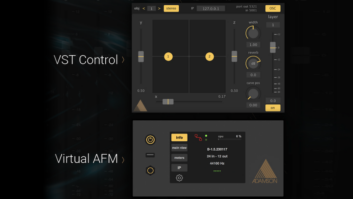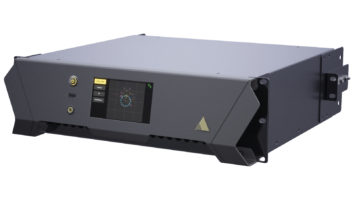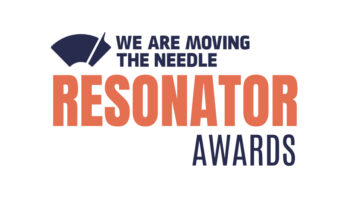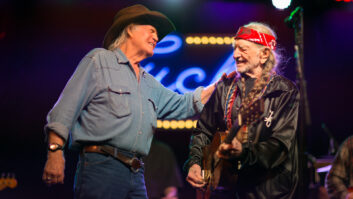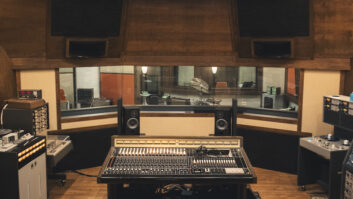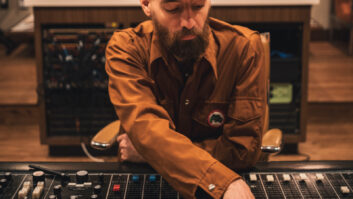
Fletcher was brought up in Brooklyn and Queens, until he was oldenough to run away to the circus, which is how he describes theneighborhood around Avenue A and East Houston Street in the EastVillage, where he learned his freak fundamentals in the early 1970s.Since then, he has been a fixture on the professional audio scene,easily recognizable by a mohawk of varying dimensions (“goes betweensix lanes and ten lanes,” he explains), a Harley Davidson, extremelypronounced opinions expressed in a loud voice between drags on anunfiltered Camel (though he recently quit after 25 years) andoccasional threats of physical violence.
Despite the menacing exterior and sometimes gruff manner, Fletcher(the only name he reveals) is a regular guy-friendly, devoted to hisfamily and dedicated to what he calls “good sound.”
After stints as a guitarist in New York bands, he came to therealization that he could make more money behind the scenes. “Theseguys hired me to move equipment and balance their sound one night for20 bucks,” says Fletcher. “At the end of the night, they each got paid$17.50 for the gig and I had $20. I figured being on the crew was abetter racket than being in the band.”
After a move to the Boston area, where he married Sue, he worked asa freelance engineer. Boston in the mid-’80s, however, was past itsentertainment prime. He and two other engineers decided to pool theirequipment for rental to make extra money. “But one night Sue comes homeand says, ‘Honey, you better sell one of those things in your rack orelse we’re not eating dinner tonight,'” Fletcher recalls. “I hadn’tworked in four months, and I was becoming an ‘Oprah’-ologist.”
Fletcher’s first pro audio sale, in 1989, was a pair of his prizedLA-3A compressors to Ed Evans, then chief engineer at Power StationStudios in Manhattan. The deal went down only after Fletcher had gonethrough every previous letter of the alphabet cold-calling studios fromMix’s Northeast studio directory. He and his partners in the rentalpool then started Mercenary Audio, named for their freelanceengineering careers.
Mercenary and Fletcher became advocates of analog, mainly, he says,because digital didn’t live up to its promise. But he did it with acertain, shall we say, flair for the conspicuous. At the 1996 AESconvention in New York, he hot-rodded a 1975 stock Harley-Davidson golfcart (the motorcycle maker was then owned by AMF Industries, whichmanufactured golf carts under the HD brand), adding reclining bucketseats from a wrecked Chevy Chevelle and removing the single-jug panheadgas motor and replacing it with an EZ-Go electric motor, which made itacceptable to drive around the show floor. It carried a banneremblazoned “Analog’s Back And It’s Pissed.”
The following year, at the L.A. AES convention, Fletcher created apiece of alleged artwork-a battered Alesis ADAT and a Mackie mixerimpaled on a 4-foot spike-entitled “Shit on a Stick” and displayed itin his booth. It was his artistic interpretation of the meatballing ofpro audio equipment, as the age of low-cost mass manufacturing kickedinto high gear. Alesis didn’t agree with his aesthetic vision. AESofficials threatened to close his booth down and eject him from theshow if he didn’t take it down. After some bluster about FirstAmendment rights and possible retaliation, Fletcher dismantled thedisplay.
Mercenary occasionally operates a recording studio, depending uponwhat gear is on hand and how Fletcher feels on a given day. The companytook a shot at manufacturing its own pro audio gear several years ago.”We lost a phenomenal amount of money and figured that it was better tokick the plug out and let that patient die,” he says of theventure.
But Mercenary now handles digital gear as well as analog equipment,now that digital is beginning to approach its real potential, saysFletcher. “I’m even mixing to digital these days,” he adds. “I wasnever really just an analog guy-I was someone who simply fought forgood audio. They were telling us back in 1978 that digital was thegreatest thing around, and here it is 1999 and they’re just starting toget it right.”
Fletcher continues to live and work in the Boston area. He has quitsmoking but continues to voice his strident views. The only argument heever really lost, he admits, is one to his wife on the naming of theirsecond daughter. “My first is named Sydney, and we call her Syd,” hesays. “I wanted to name the second one Nancy. I couldn’t get that onepast my wife.”

